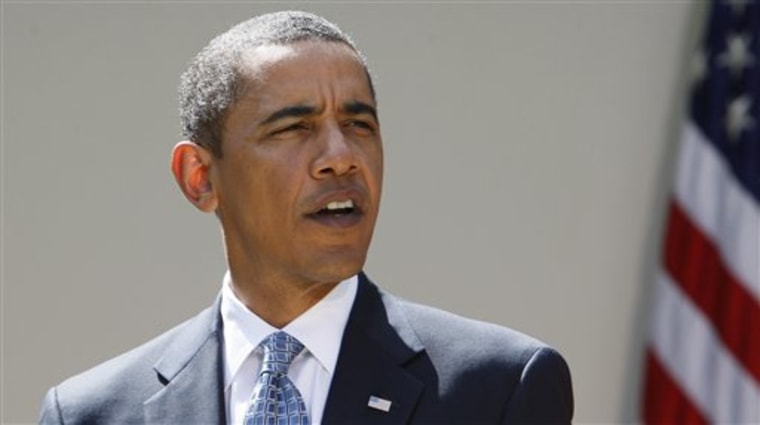For backers of health care overhaul, it's TGIS: Thank goodness it's September.
August was brutal, as lawmakers faced raucous crowds denouncing Democratic plans and polls showed support for President Barack Obama and various proposals dropping fast. Now, with Congress to reconvene next Tuesday, proponents hope to change the dynamic by holding quiet, closed-door sessions with nervous Democratic lawmakers and arguing that far-reaching health care changes can be good politics as well as good policy.
They also hope GOP-led opposition has peaked. But that's far from clear, and Republicans are eager to hand Obama his first major defeat.
Obama plans to meet with top Democratic lawmakers next Tuesday, and some supporters are urging him to associate himself more directly with key elements of health care bills that have cleared four congressional committees. Obama plans a Sept. 15 speech on health care in Pittsburgh.
White House officials and top congressional Democrats concede they were caught flat-footed by the ferocity of attacks against their health care plans during the August recess.
A new CNN/Opinion Research poll found that 53 percent of Americans disapproved of Obama's handling of health care, while 44 percent approved. In March, far more people had approved than disapproved.
In a Kaiser Health Tracking Poll in August, 53 percent said they favored passing some sort of health care revision this year, a drop from 61 percent in June.
More meetings
Conceding that opponents have the momentum, Democratic leaders plan a round of big and small meetings in the Capitol next week, focusing on moderate senators and House members from competitive districts who fear that voting for a sweeping bill could cost them the next election. Liberal groups have held hundreds of events in a bid to show that a robust overhaul is more popular than August's news reports would suggest.
"The message they'll be hearing coming back to Washington will be very different than what they heard when August started," said Jacki Schechner of Health Care for America Now. One idea her group will stress, she said, is that the politically smart vote, even in toss-up districts, will support widespread changes meant to expand health insurance coverage and options.
Nervous Democratic lawmakers need to be told, "you got elected to do something," she said. "And you might get re-elected if you actually do something."
Many first- and second-term House Democrats believe the noisiest protesters, who often dominated last month's town halls, do not represent most of their constituents, said Rep. Chris Van Hollen, D-Md., who is tasked with getting his colleagues re-elected. Democratic leaders will try to build on that point, he said, listening to members' concerns and emphasizing the political and societal risks of doing nothing.
Some Democrats say Republicans blundered by basing so much of the opposition on demonstrably untrue claims, such as assertions that the House legislation would lead to "death panels" for elderly patients. In the Capitol's cool, calm setting, party leaders hope to persuade lawmakers that such claims are easily refuted.
Republicans "have hooked their wagon to a misinformation truck that at some point will run out of gas," said Democratic Party spokesman Doug Thornell. Republicans say many of the criticisms are defensible.
Democrats also are portraying GOP leaders as cynics who pretend to want a bipartisan accord but have never intended to compromise in any meaningful way. Obama wants a bipartisan bill, White House press secretary Robert Gibbs said this week, "but there have to be people on the other side of the table to respond."
"The people in those chairs seem to be leaving more rapidly than the American people want them to," Gibbs said.
Liberals are seizing this argument to urge Congress and Obama to push for full-blown health care changes. There's no need for Democrats to compromise when they are the game's only players, these activists say.
Without question, Republicans approach Labor Day feeling far more upbeat about the ground they gained during the August recess. Some are confident that no amount of closed-door hand-holding of nervous Democratic lawmakers will reverse the momentum.
"After a disastrous month at home, the fact that Democrats' new health care strategy is to hide in Washington from the people who elected them to get health care passed shows what bad shape they're in," said Antonia Ferrier, spokeswoman for House Republican leader John Boehner of Ohio. The problem is not the sales pitch, she said, but "the product they're pushing."
The GOP's most effective attacks, many Democrats say, deal with Obama's questionable claim that the nation can significantly expand health coverage without increasing the deficit over 10 years. The nonpartisan Congressional Budget Office says none of the pending health plans would control long-term spending, and that ones with the elements Obama wants would expand the deficit by about $1 trillion over the next decade.
Trim the cost
Some Democrats say the congressional leaders will have to trim more costs from the health bills that have cleared one Senate committee and three House panels, even though it would antagonize liberals and make it harder to cover uninsured people, one of Obama's top goals.
"That's the kind of thing we're going to look at," said Van Hollen, a member of the House Democratic leadership.
In the Senate, many members see almost no hope that a workable bipartisan plan will emerge from protracted negotiations in the Finance Committee. And the death of Sen. Edward M. Kennedy deprives Democrats of not only a leader on health care, but also a potential 60th vote to overcome Republican filibusters.
Democrats have not ruled out the possibility of using a strong-arm tactic, called "budget reconciliation," to pass some of the health care proposals with a simple majority in the 100-member Senate.
But that divisive strategy "would wreck our health care system and wreck the Democratic Party," Sen. Lamar Alexander, R-Tenn., told reporters Tuesday. "The intensity on this issue is like nothing I've seen across the country in a long, long time."
